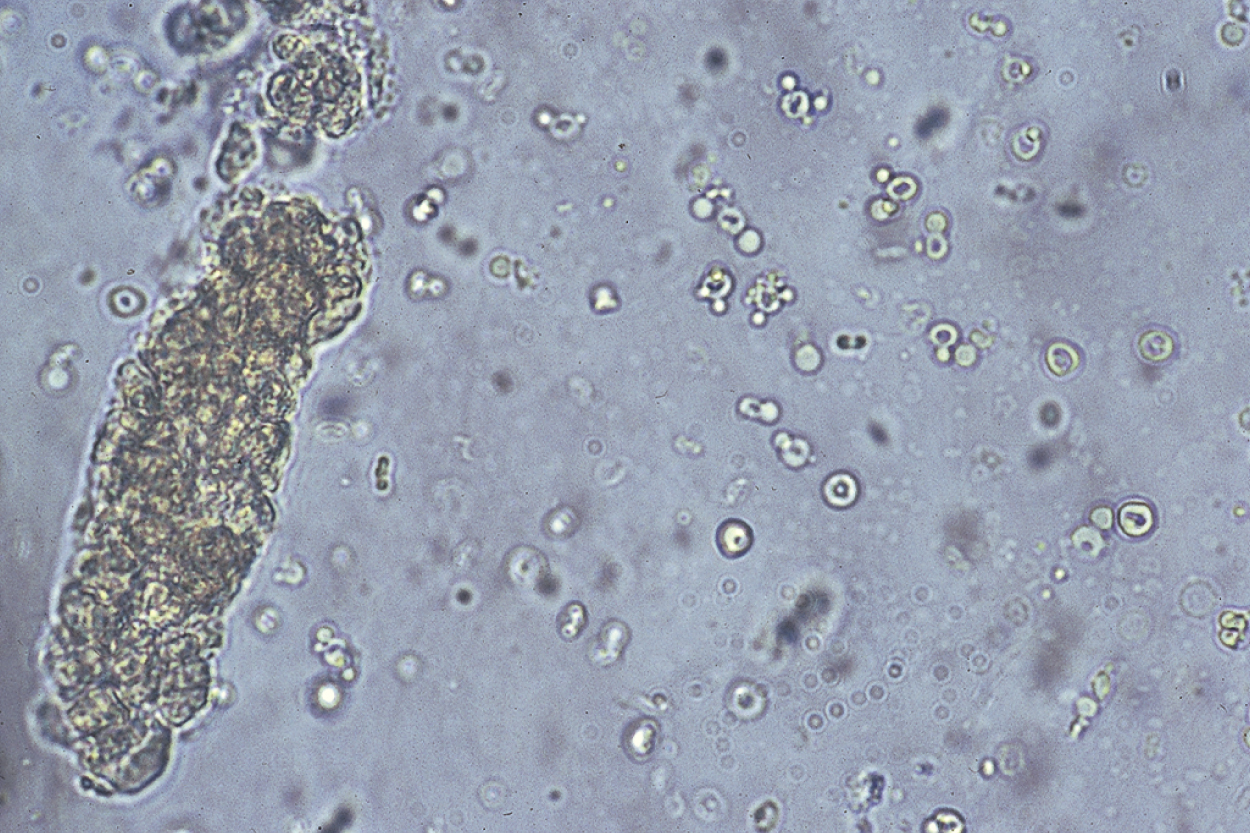postinfectious glomerulonephritis, the acute form of glomerulonephritis, which may follow 1 to 6 weeks after a streptococcal infection, most often in childhood. Characteristics of the disease are hematuria, oliguria, edema, and proteinuria, especially in the form of granular casts. There may be slight impairment of renal function in adults, but most patients recover fully in 1 to 3 months. There is no specific treatment for this form of glomerulonephritis. Restriction of dietary protein and the prescription of diuretics may be necessary until kidney function returns to normal. Also called acute glomerulonephritis. See also chronic glomerulonephritis, subacute glomerulonephritis. ▪ OBSERVATIONS: Onset of symptoms occurs 1 to 6 weeks after a streptococcal infection. Symptoms include hypertension, headache, edema, oliguria, dark urine, reduced urine output, flank pain, weight gain, fever, chills, nausea, and vomiting; about half of cases are asymptomatic. Diagnosis is made through a series of lab tests. Hematuria (microscopic or gross), proteinuria, sediment, and RBC casts are seen on urinalysis. Blood chemistries reveal increased blood urea nitrogen, increased serum creatinine, increased serum lipids, and decreased serum albumin. ASO titers are positive. Complications include congestive heart failure, acute or chronic renal failure, and end-stage renal disease. ▪ INTERVENTIONS: Treatment focuses on treating symptoms and preventing complications. Antihypertensives are administered for hypertension, diuretics are given for edema, and antiinfective drugs are administered if an infection is still present. Electrolytes are monitored and abnormalities corrected. Diet therapy focuses on restricted sodium, restricted potassium, and low protein to combat electrolyte abnormalities and uremia. Hemodialysis or peritoneal dialysis may be used to treat renal failure. ▪ PATIENT CARE CONSIDERATIONS: Nursing management in acute care focuses on supportive measures. Bed rest, fluid, and electrolyte restrictions and dietary reduction of protein are necessary until signs of inflammation (e.g., proteinuria and hematuria) subside. Instruction centers on restrictions and proper administration of a full course of antibiotics. Prevention is also key and involves encouraging individuals to seek early diagnosis and treatment of sore throats and skin lesions, particularly in children.

